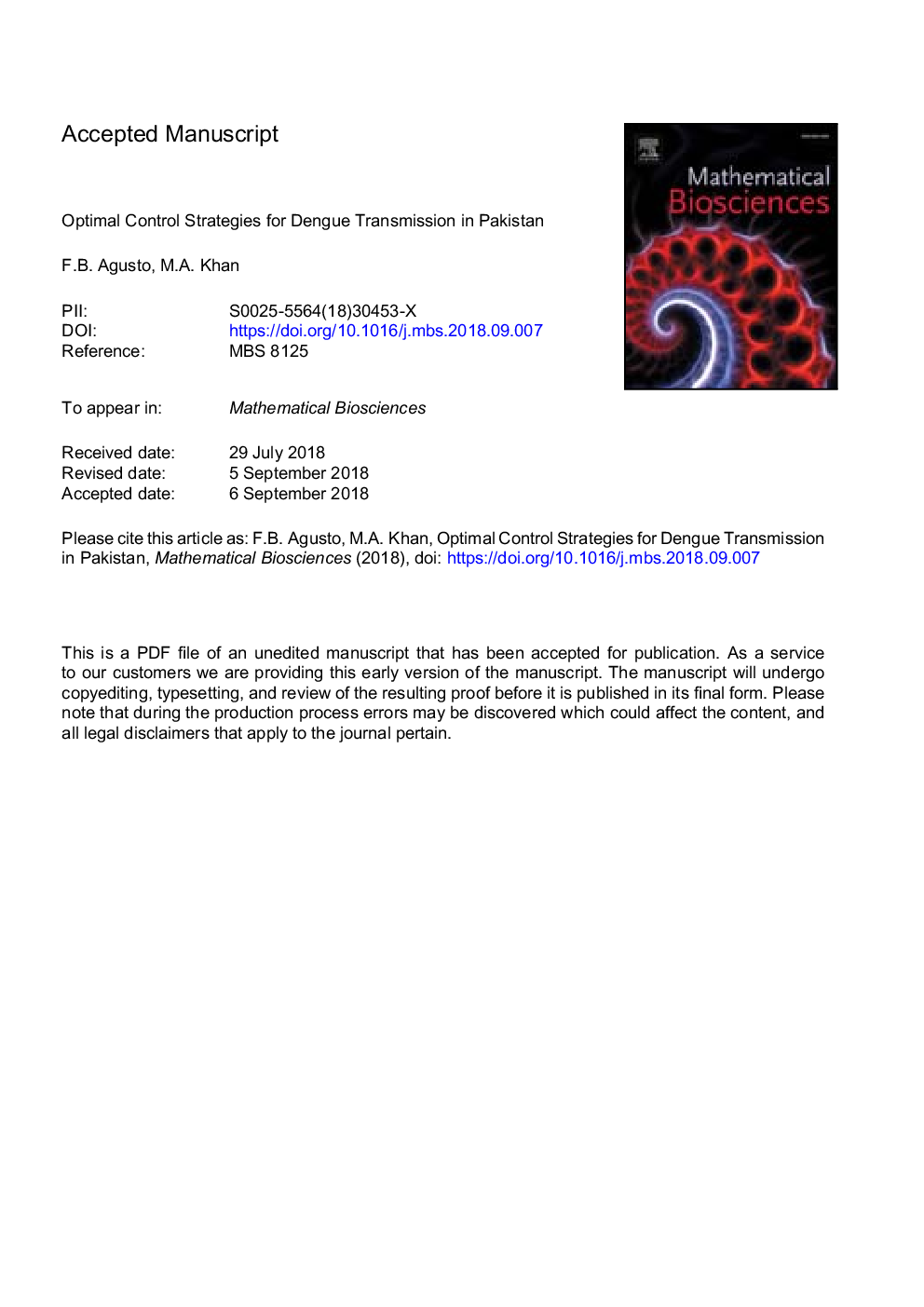| Article ID | Journal | Published Year | Pages | File Type |
|---|---|---|---|---|
| 11028588 | Mathematical Biosciences | 2018 | 49 Pages |
Abstract
This paper presents a deterministic model for dengue virus transmission. The model is parameterized using data from the 2017 dengue outbreak in Pakistan. We estimated the basic reproduction number (R0) without any interventions for the 2017 dengue outbreak in Peshawar district of Pakistan as R0â2.64, the distribution of the reproduction number lies in the range R0â[1.21,5.24] (with a mean R0â2.64). Optimal control theory is then applied to investigate the optimal strategy for curtailing the spread of the disease using two time-dependent control variables determined from sensitivity analysis. These control variables are insecticide use and vaccination. The results show that the two controls avert the same number of infections in the district regardless of the weights on the costs this is due to the reciprocal relationship between the cost of insecticide use and vaccination. A strong reciprocal relationship exists between the use of insecticide and vaccination; as the cost of insecticide increases the use of vaccination increases. The use of insecticide on the other hand slightly increases when vaccination level decreases due to increase in cost.
Related Topics
Life Sciences
Agricultural and Biological Sciences
Agricultural and Biological Sciences (General)
Authors
F.B. Agusto, M.A. Khan,
